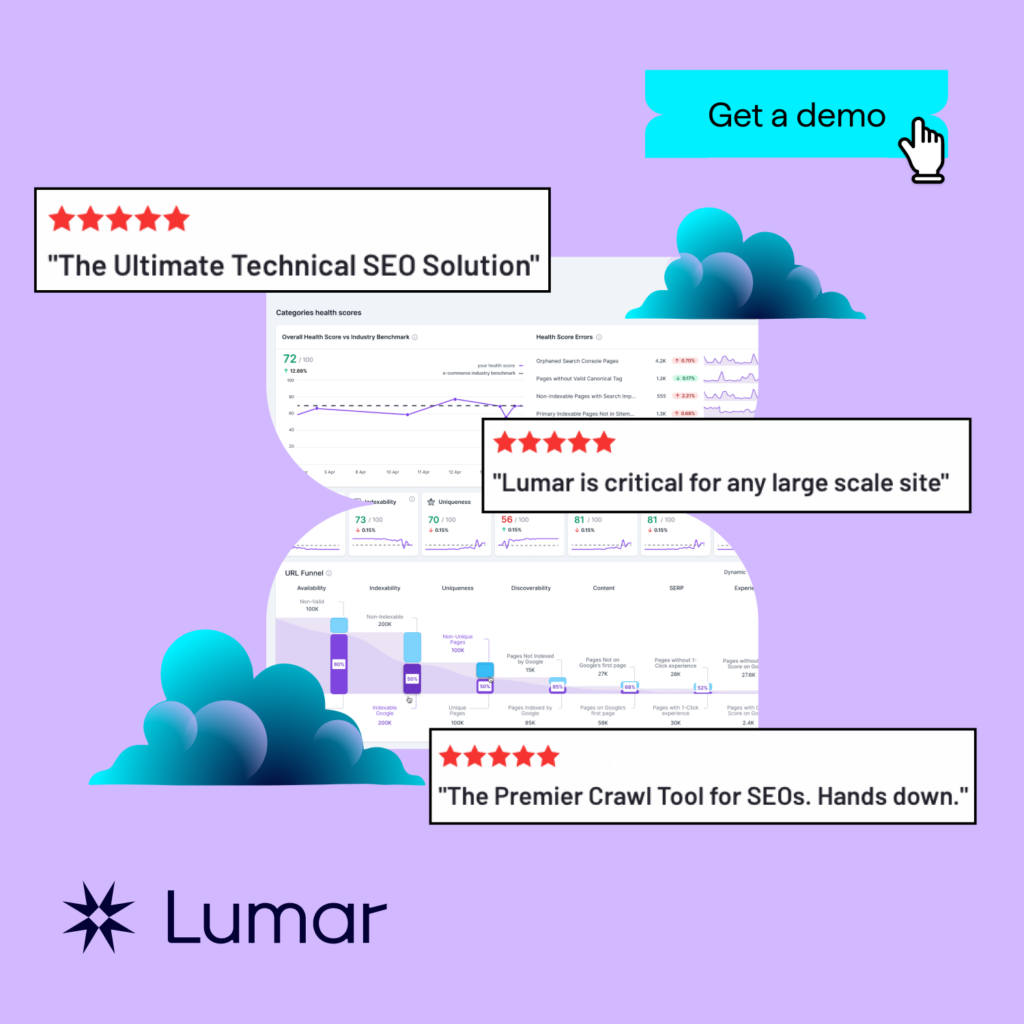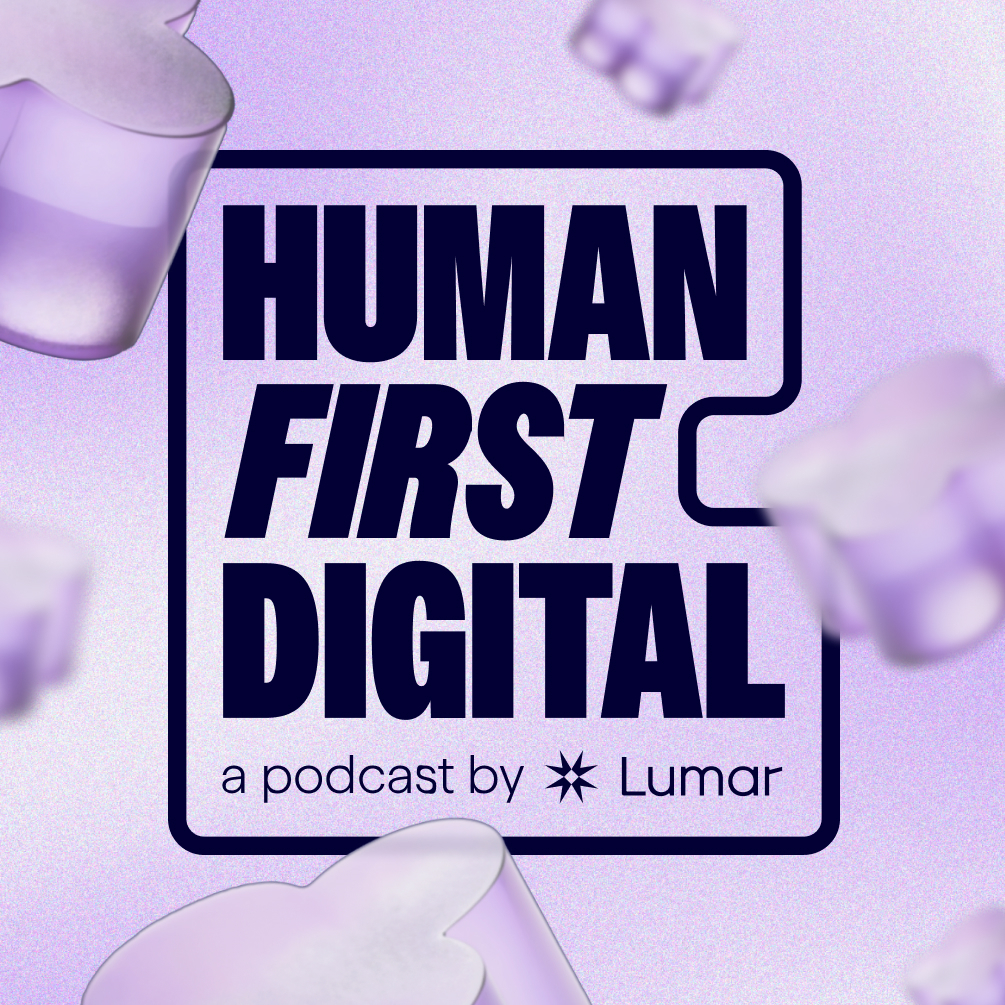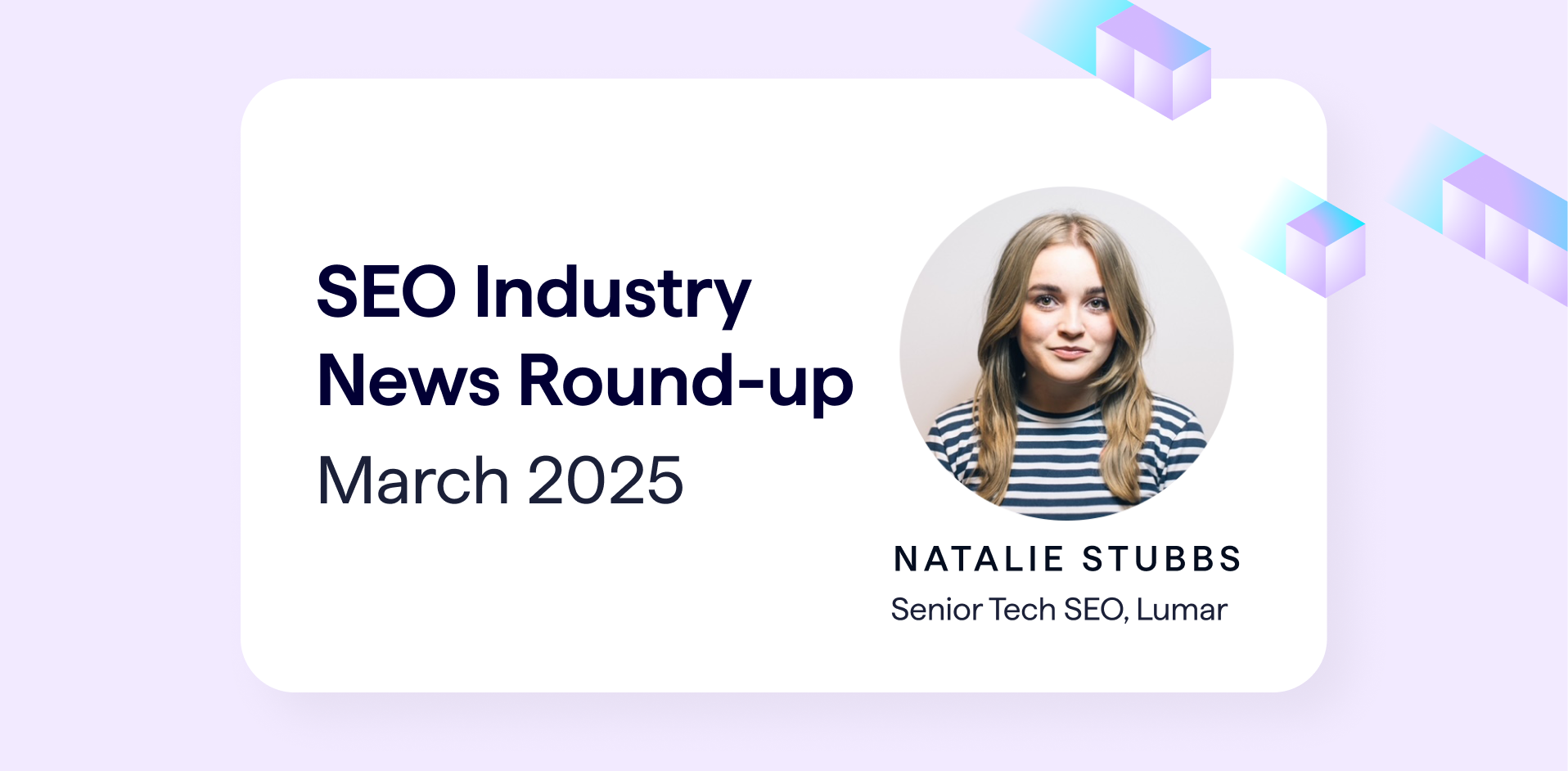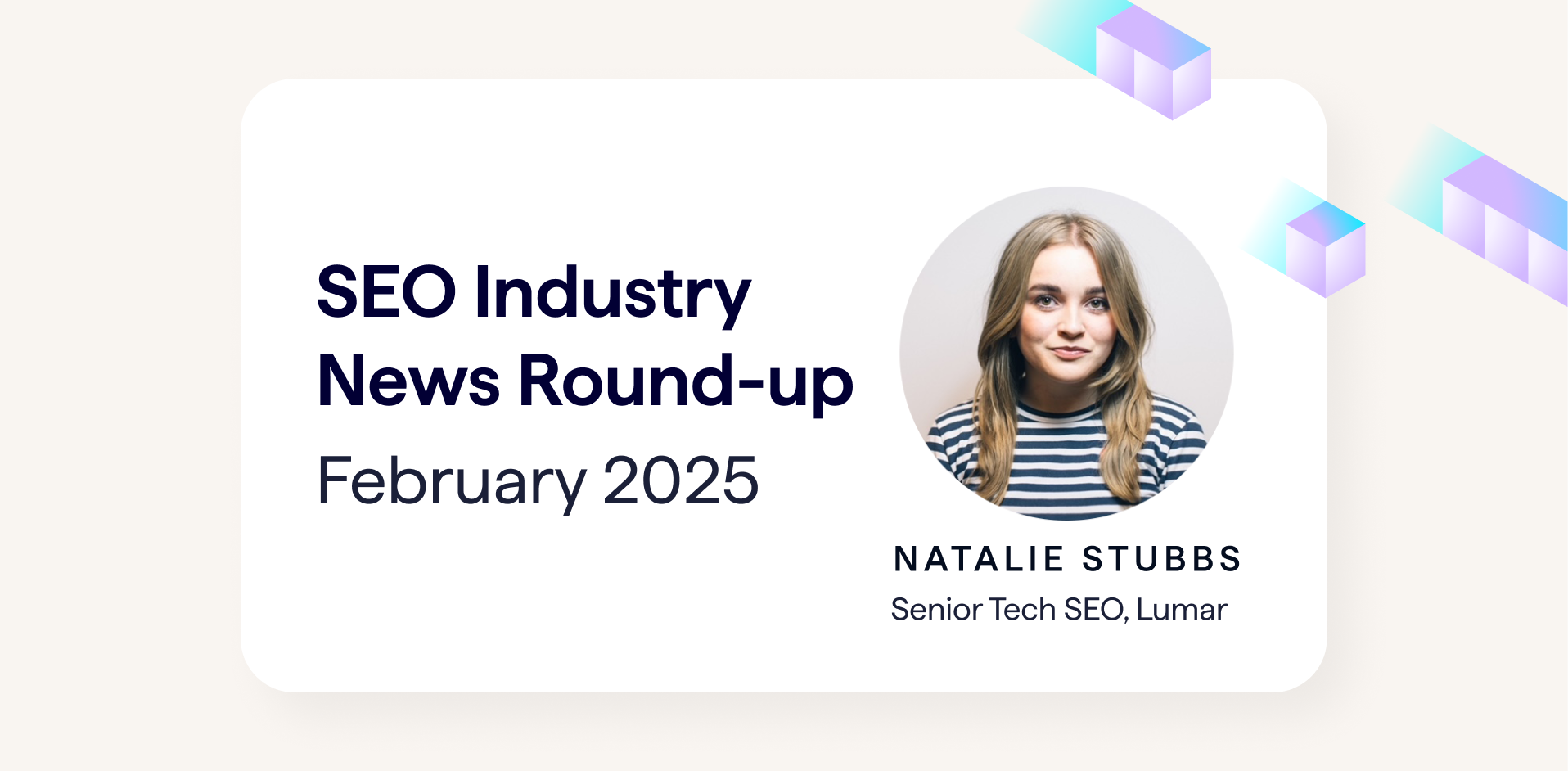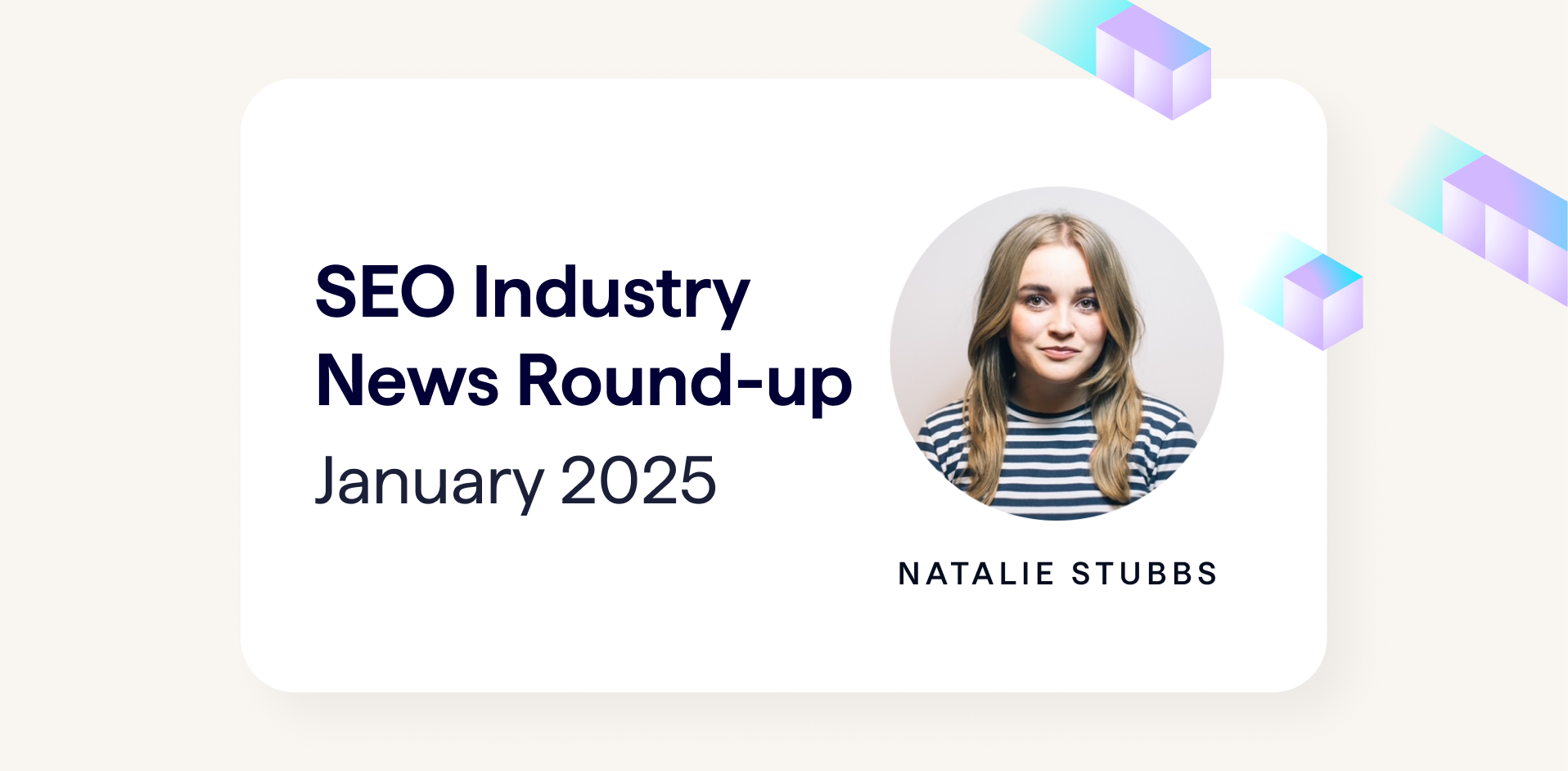What happened in SEO this month?
Each month, Lumar’s in-house tech SEO experts hand-pick some of the SEO industry’s top news items from across the web to keep you up-to-date on all things SEO and website optimization.
This month, our SEO news roundup includes:
- A new December core update from Google, just days after November’s core update completed rollout.
- ChatGPT web search is now extended to all free accounts (previously only available for paid users).
- A new study on AI web crawlers shows they struggle with JavaScript rendering and inefficient crawling.
- Publishers are reevaluating their use of third-party content producers in the wake of Google’s crackdown on “site reputation abuse” and “parasite SEO.”
- And more!
Now, let’s dig into the key SEO headlines from December…
Google’s December Core Update
Google’s December 2024 core update, the fourth and final of the year, started rolling out on December 12 and concluded on December 18, 2024. This update was notable for its rapid rollout, completed in just six days — and for launching only a week after the November 2024 core update. There are few details about what was included in this month’s core update — Google Search Central simply posted (on X): “If you’re wondering why there’s a core update this month after one last month, we have different core systems we’re always improving.”
Worth noting as well is a comment from Google’s Search Central Live event this month in Zurich that said we should expect more core updates, more often.
(Sources: Search Engine Roundtable ; Google Search Status Dashboard )
Google’s recently updated spam policies are influencing publishers’ decision to cut ties with external content creators
According to reporting from The Verge, Forbes is cutting ties with freelance writers for some sections of its website (including its product reviews). The explanation given to one freelance writer cited Google’s recent crackdown on “site reputation abuse” which noted the third-party nature of parasite SEO content, wherein a reputable site might also publish a huge amount of spammy content generated by external parties for the sole purpose of grabbing more search rankings (for example, ‘coupon code’ sections hidden on the websites of big-name publishers).
Per Google’s Search Central blog last month:
“Site reputation abuse is the practice of publishing third-party pages on a site in an attempt to abuse search rankings by taking advantage of the host site’s ranking signals.”
(Sources: The Verge ; Google Search Central)
New research on how AI bots crawl the web
A new study by Vercel and Merj examines the proliferation of AI bots crawling the web.
AI crawlers (such as OpenAI’s GPTBot and Anthropic’s Claude and Perplexity’s PerplexityBot) have rapidly increased their web presence, collectively accounting for nearly 1.3 billion monthly fetches across Vercel’s network—about 28% of Googlebot’s volume.
The study found that most of these AI crawlers currently do not execute JavaScript, which can lead to incomplete indexing of client-side rendered or dynamically rendered content. (Google’s Gemini, however, leverages Googlebot’s infrastructure, enabling JavaScript rendering.)
AI crawler fetch patterns also showed variety in the content formats prioritized by the different AI crawlers — ChatGPT, for instance, seems to prioritize HTML content (57.7% of fetches), while Claude focuses more heavily on images compared to other AI bots (35.2% of fetches). Googlebot’s fetches (across Search and Gemini), by comparison, are more evenly distributed across content types (HTML, plain text, JSON data, and JavaScript).
AI crawlers also exhibited notable crawl inefficiencies, with higher rates of fetches hitting 404 pages and outdated assets compared to traditional search engines. A key takeaway? For website owners aiming to optimize visibility to AI crawlers, it’s advisable to prioritize server-side rendering for critical content and maintain efficient URL management practices.
(Source: Vercel, “The Rise of the AI Crawler” )
ChatGPT web search is now available for free to all users
On December 16, OpenAI announced on X that its new web search tool is now being rolled out to all free users. Previously, ‘SearchGPT’ was only available for paid accounts. Per their post:
“ChatGPT search 🌐is starting to roll out to all Free users today. Search the web in a faster, better way—available globally on http://chatgpt.com and our mobile and desktop apps for all logged-in users.”
(Source: OpenAI on X)
Google introduces Gemini 2.0
Google has introduced Gemini 2.0, its latest AI model designed for the “agentic era,” featuring advanced capabilities such as multimodal output with native image and audio generation and the ability to utilize tools like Google Search and Maps. This model enables AI agents to perform complex tasks autonomously, including online ordering and scheduling, enhancing user experiences across various applications. Developers can access Gemini 2.0 Flash experimentally via the Gemini API in Google AI Studio and Vertex AI, with broader availability anticipated in early 2025. Google is also exploring agentic experiences through initiatives like Project Astra, an AI assistant for Android devices, and Project Mariner, an agent capable of autonomous web navigation.
(Source: Google Blog)
Google Gemini is forcing contractors to rate AI responses outside of their expertise
TechCrunch reports that new guidelines for Google contractors working on its Gemini AI project now require them to evaluate AI-generated responses even in areas beyond their expertise. Previously, these contractors could skip prompts they felt unqualified to assess, but the new policy mandates that they provide ratings regardless (noting their lack of expertise when applicable). This change has raised concerns about the accuracy and reliability of AI outputs, particularly on sensitive topics like healthcare, where misjudgments by non-experts could lead to the dissemination of false information. Contractors are now permitted to skip prompts only if they lack complete information or if the content is harmful and requires special consent forms to evaluate, according to TechCrunch’s reporting.
(Source: Tech Crunch)
Now you can call ChatGPT
OpenAI has introduced 1-800-ChatGPT, a toll-free service that allows US-based users to access ChatGPT’s AI capabilities via phone, providing assistance without needing an internet connection or a ChatGPT account. Worldwide, text access to ChatGPT is also rolling out via WhatsApp.
This development expands the accessibility of AI tools, enabling users to utilize generative AI via a simple phone call. The service is currently available in the United States, with plans for international expansion in the future. This move reflects OpenAI’s commitment to making AI more accessible and user-friendly across various platforms.
(Sources: Search Engine Journal ; OpenAI announcement on YouTube)


